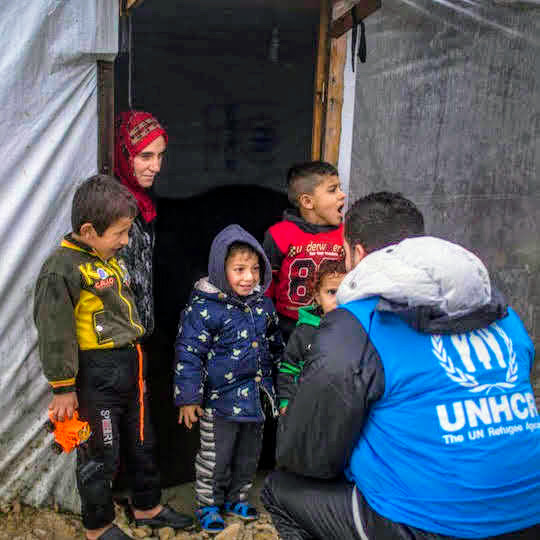Post Distribution Monitoring: Multi Purpose Cash Assistance Mid-Year 2022
Jordan, 2022
Get MicrodataIdentification
UNHCR_JOR_2022_PDM_MPC_v2.1
Post Distribution Monitoring: Multi Purpose Cash Assistance Mid-Year 2022
| Name | Country code |
|---|---|
| Jordan | JOR |
This dataset contains the results from the 2022 mid-year Post-Distribution Monitoring (PDM) exercise carried out in June 2022, of the UNHCR multi-purpose cash assistance in Jordan.
Jordan hosts 761,580 refugees, making it the fourth host country of refugees per capita in the world. To ensure that the basic needs of the most vulnerable are met, UNHCR provides cash assistance to recipients selected based on vulnerability criteria.
As of June 2022, cash assistance continues to have a positive effect on respondents’ psychological and financial wellbeing. In comparison to August 2021, more respondents reported that their wellbeing was improved significantly because of the programme. Just as in previous years, most respondents spent the cash assistance on basic needs, mainly rent (80%) and food (45%). While expenditure on rent has slightly increased since October 2021, fewer respondents spent the cash assistance on food, continuing a tendency of the past few years.
The percentage of respondents’ households holding debt reached 91%, the highest figure since late 2018. Meanwhile, food insecurity increased for non-Syrian and, even more substantially, for Syrian refugees, nearly closing the gap between the two groups. As most respondents could meet only half or less than half of their basic needs, many adopted coping strategies such as reducing expenditure for basic needs, buying food on credit or taking out loans. This year, 1 in 5 respondents also reported engaging in activities for money that may put their household at risk of harm, marking a 19-percentage point increase from the summer of 2021.
Feedback on UNHCR communications and treatment remains largely positive. Most recipients surveyed received the cash assistance on time and in the expected amount, and most felt that they were treated with respect. Furthermore, there was an increase by 26 percentage points from August 2021 in the share of recipients who are aware of how they can report complaints and feedback to UNHCR. However, there were substantial variations in satisfaction levels among those who contacted UNHCR in the past year, with Syrians being the most likely and Yemeni the least likely to be satisfied with the support provided.
Sample survey data [ssd]
Household
Version
v2.1: Edited, cleaned and anonymised data.
Scope
The scope includes:
- household and member demographics
- expenditures
- issues
- communictaions
| Topic |
|---|
| Cash Assistance |
| Basic Needs |
Coverage
Households participating in the cash assistance programme.
Producers and sponsors
| Name |
|---|
| UNHCR |
Sampling
In June 2022, Mindset, a research firm based in Jordan, conducted 600 phone interviews with refugees whose households are receiving UNHCR basic needs cash assistance. The sample was randomly drawn from the UNHCR basic needs cash assistance recipients’ list. The respondents interviewed were briefed on the purpose of the survey before agreeing to participate and asked questions related to receiving and spending the cash assistance, associated risks and issues, prices and markets as well as outcomes of the programme using an updated version of the PDM household survey tool. The data collected is not representative of the general refugee population in Jordan as it represents only recipients participating in the cash assistance programme.
Survey instrument
The questionnaire contained the following sections: Demographics, Receiving and spending the cash assistance (basic facts), Risks and problems, Markets and prices, Expenditure, Outcomes, Longer-Term Outcomes, Accountability to Affected Persons.
Data collection
| Start | End |
|---|---|
| 2022-06-15 | 2022-07-04 |
- Computer Assisted Telephone Interview [cati]
- Computer Assisted Personal Interview [capi]
| Name |
|---|
| Mindset |
Data Access
UNHCR (2022). Jordan: Post Distribution Monitoring: Multi Purpose Cash Assistance Mid-Year 2022. Accessed from: https://microdata.unhcr.org
Contacts
| Name | Affiliation | |
|---|---|---|
| Curation team | UNHCR | microdata@unhcr.org |
Metadata production
UNHCR_JOR_2022_PDM_MPC_v2.1
| Name |
|---|
| UNHCR |
2022-12-12
